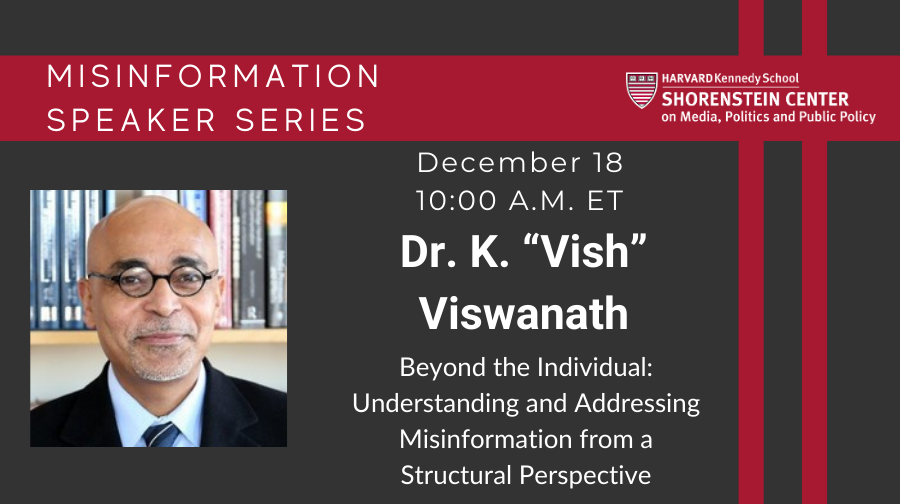Beyond the Individual: Understanding and Addressing Misinformation from a Structural Perspective
Northeastern University, 177 Huntington Ave. 11th floor & Zoom
10:00 AM

This event does not require registration. To join the virtual talk, click here: https://northeastern.zoom.us/j/93421052481#success
Much attention in research and debate on misinformation has focused on individuals and how potential interventions could be implemented to mitigate its effects on individuals. This literature has contributed substantially to our understanding of how exposure to misinformation is likely to take place and what can be done reduce its impact. What is missing from the debate is the role of structural and institutional factors that could reduce the supply of misinformation or provide more evidence-based information, and how the effects may vary by groups. Similarly, structural conditions such as communication inequalities may contribute to exacerbating misinformation impacts and point to potential areas of focus for interventions. This talk will identify and delineate some of these structural factors, discuss exemplar interventions including approaches using community-engagement strategies.
Dr. K. “Vish” Viswanath is Lee Kum Kee Professor of Health Communication in the Department of Social and Behavioral Sciences at the Harvard T. H. Chan School of Public Health (HSPH) and in the McGraw-Patterson Center for Population Sciences at the Dana-Farber Cancer Institute (DFCI). He is also the Faculty Director of the Health Communication Core of the Dana-Farber/Harvard Cancer Center (DF/HCC). Other additional administrative and scientific leadership positions held by Dr. Viswanath include: Director of the Center for Translational Communication Science, DFCI; Director, Harvard Chan India Research Center and Director, Lee Kum Sheung Center for Health and Happiness, Harvard Chan. He is the founding Director of DF/HCC’s Enhancing Communications for Health Outcomes (ECHO) Laboratory. Dr. Viswanath’s work is driven by two fundamental concerns: (a) how to center equity in drawing on translational communication science to promote health and well-being for ALL population groups, and (b) to involve community-based organizations and stakeholders through participatory research in promoting social change. The ultimate goal of the program of research in his lab is to influence public health policy and practice through knowledge translation and translational communication. His work draws from literatures in communication science, social epidemiology, dissemination and implementation, and social and health behavior sciences.